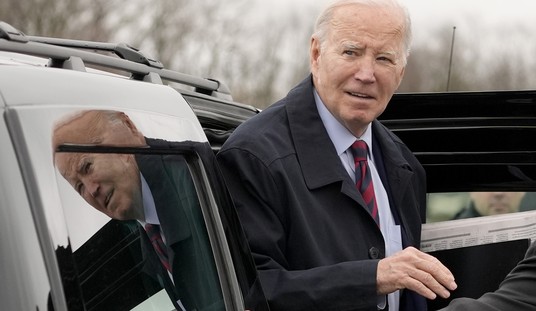Many people at the highest levels of Government and industry have taken a cynical and duplicitous approach to illegal immigration. In a way, it’s symbolic of the approach most average Americans have taken. We rely on immigrant labor to fill jobs that Americans won’t do (at the wages and under the working conditions immigrants are subjected to), while complaining about the side effects – overburdened social services, crime, and cultural dilution in the border states. After all, it’s not hard to spot the illegal immigrants in any given neighborhood. In fact, it’s quite simple. They are the only people cheaply tending your lawn, babysitting your children, and running your restaurants. Illegal immigration in many ways acts like outsourcing for non-exportable jobs in this country.
But up until now the focus has been on curbing the supply. The approaches have ranged from the purely silly – like trying to erect a wall along the Mexican border – to the downright diabolical: private citizens forming vigilante groups and terrorizing hapless brown people who may or may not be illegal immigrants. The recent Arizona law, which revokes the business licenses of employers who knowingly hire illegal immigrants is the first real measure focused on the demand side.
Recommended
The immigration debate contains many parallels to the debate over illegal drugs. Mexico and other nations’ authorities have for years tried to stamp out the cultivation and distribution of cocaine – with limited success. They have been pressured by U.S. officials to shore up their judicial infrastructure against corruption and intimidation, and confront the armed drug cartels with military power. In response, those countries have urged a reform of drug laws and a focus on curbing demand for illegal drugs in America. In their view, if Americans were not such profligate consumers of illegal drugs – their countries would not produce and export them. Recently such an approach has gained traction, with several states beginning to decriminalize, regulate and tax some of the less dangerous substances.
Illegal immigrant labor is a performance enhancing drug with wide side effects. By hiring illegals, companies get an edge over other firms that don’t. They buy cheap labor from individuals who have no civil rights whatsoever: they cannot complain if they are cheated on their paycheck, protest unhealthy working conditions, or reject wages beneath the minimum federal wage level. If they do complain, they can be immediately detained and sent back to their countries of origin with none of the due process that would be accorded an American citizen. And so this keeps them in their place – a place of legal limbo - and gives U.S. firms access to what is essentially slave labor.
Before now, we’ve had a tacit agreement between big business and big government to leave the immigration issue unresolved. After all, illegal labor has acted as a subsidy to businesses and consumers of the cheap labor. But that arrangement seems to be cracking, and that’s a good thing. The American people want their borders defended and their rights protected by the Government that they, the citizens, have elected. This is especially true in a recession when Americans are facing unprecedented unemployment, debt and declining living standards.
The recent Supreme Court ruling was right for America – legally, factually and morally. But the Supreme Court’s vocal minority, along with a strange bedfellows' coalition of big business and civil rights organizations would have you believe that a reasonable business regulation is an encroachment on the civil rights of legal immigrants. Nothing could be further from the truth. The regulations are narrowly tailored in accordance with Federal definitions of “illegal” status, and they accord appropriate due process for the offending corporations. No one can be rejected for a job because they “look” illegal. But businesses have the additional responsibility of verifying an applicant’s immigration status. All of the normal civil rights protections for workers has been undisturbed by the ruling.
America is, after all, a country of immigrants – a proverbial melting pot of the world’s population. We gain strength from the culture, from the stories and the struggles of people all over the world that have come here and helped make our nation great. But illegal immigration, while it has some short term benefits, ultimately dilutes the rights and privileges of Americans who pay their taxes and play by the rules. It’s not fair for employers to get the benefit of illegal labor at a cheap price, while the society as a whole has to bear the price of social services for people who do not vote or pay taxes in this country.
This issue has divided America since it’s founding. The framers of the constitution debated about whether a country that defended individual liberty and inalienable rights on the one hand could coexist with a class of people who had no rights at all. Cynically, rich plantation owners (the big business of the day) wanted the slaves counted for political apportionment purposes, but were not willing to grant them full rights of citizenship. The current debate contains remnants of the original Constitutional fault line: elites attempting to control the voices and economic clout of the masses with undemocratic policies.
In the past, such unfairness caused such a rift in the union that it sparked a bloody war. The elites attempted to secede from the United States in order to keep slavery in place. Let’s hope we can avert such an abomination this time around.
Read Armstrong Williams content on RightSideWire.com and listen daily on Sirius Power 128, 7-8 p.m. and 4-5 a.m., Monday through Friday. Become a fan on Facebook- www.facebook.com/arightside, and follow him on Twitter at www.twitter.com/arightside.
























Join the conversation as a VIP Member